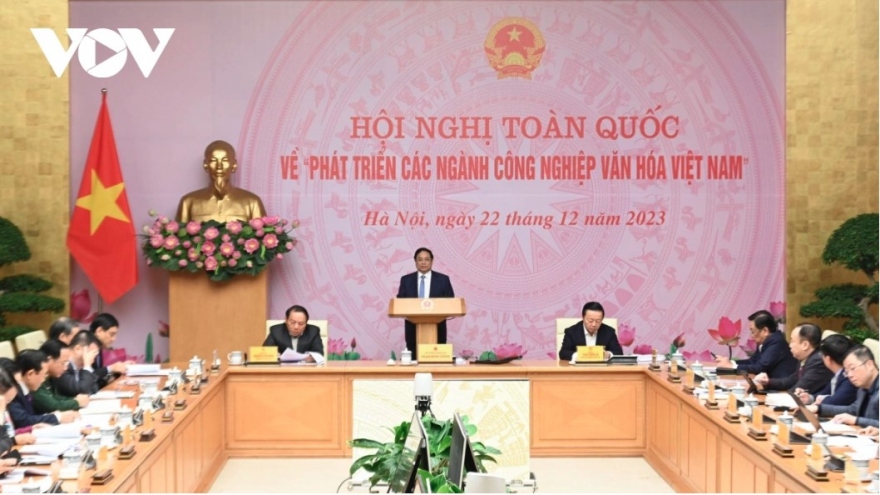What to do to develop cultural industries in Vietnam?
VOV.VN - Cultural industries boast great potential and opportunities for development, and they are increasingly playing an important role in the economy, becoming a driving force for sustainable development.
Modest investment

The cultural industries and creative industries are considered to be among the fastest growing industries in the world that are projected to generate up to 10% of global GDP by 2030. Many countries hold the view that creative culture plays an increasingly important role in the post-industrial economy, serving as a driving force for sustainable development.
In Vietnam, the Party and State have over the past years introduced guidelines, policies, and laws to develop culture and cultural industries. The Party Central Committee in a resolution adopted in 2014 stressed the need to build a healthy cultural market, promote the development of cultural industries, and strengthen the popularisation of Vietnamese culture. The 13th National Party Congress held in 2021 also set the task of urgently developing cultural industries and cultural services by identifying and bringing into full play the soft power of Vietnamese culture.
In September 2016, the Government approved a national strategy for developing Vietnamese cultural industries till 2020 with a vision towards 2030. Five years later, 12 cultural industries identified in the strategy generated more than US$8 billion in revenue, equivalent to 3.61% of the country’s GDP. These figures show cultural industries have plenty of room to develop, though there are challenges ahead.
Elsewhere, creative industries contributed more than GBP115 billion to the UK economy in 2019, equivalent to 5.9% of its GDP, while China’s cultural industries recorded average annual growth of 18.9% between 2005 and 2018, a figure much higher than its annual GDP growth rate of 7.9%.

Developing cultural industries is considered to a success story in the Republic of Korea. There is a big change in the country’s cultural management in which the Government has increased cooperation with the private sector to ensure the top-down approach is no longer a prominence and the cultural policy must cater to the diverse tastes of all social classes. Thanks to the public-private partnership model, the Korean economy has benefitted from exporting cultural products worldwide as evidenced in the popular Korean film and music trends.
Compared to other countries in the region and around the world, Vietnam is still left behind in terms of developing cultural industries. In this context, learning from international experience can be viewed as extremely necessary.
What to do?
Dr. Nguyen Phuong Hoa, head of the International Cooperation Department (Ministry of Culture, Sports and Tourism), says the cultural policy is now centred on audiences and their taste as opposed to artists as previously was the case, along with the stages of distribution and consumption.
The State should seek to promote the public – private partnership model and create a conducive cultural industries ecosystem to help firms gain access to necessary support and assistance, including financial assistance, to undertake their ambitious projects, suggests the official.

Moreover, strategies for developing cultural and creative industries should be closely linked to other related support strategies including those for small and medium sized enterprises, as well as vocational training, to become part of the national socio-economic development plan.
Hoa also underscores the importance of ramping up digital transformation and bringing into full play opportunities of e-commerce, the digital economy, and digital society development in developing cultural industries.
Last but not least, she notes that international cooperation should be enhanced to strengthen cultural soft power and expand export markets for cultural products and services.
To this end, she suggests that the country should continue to attend reputable regional and international cultural and artistic events whilst proactively hosting a number of international-scale events to introduce high-quality Vietnamese cultural products towards building national brand products for export.


